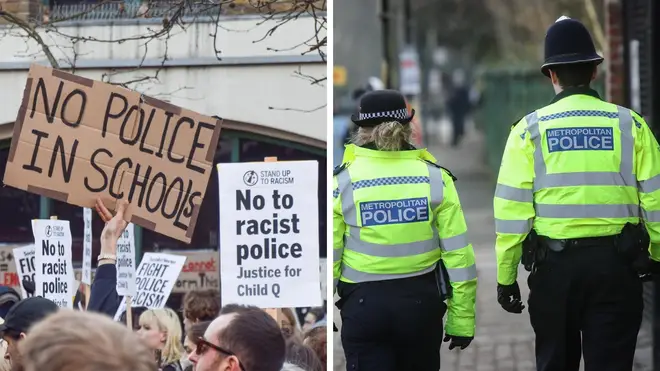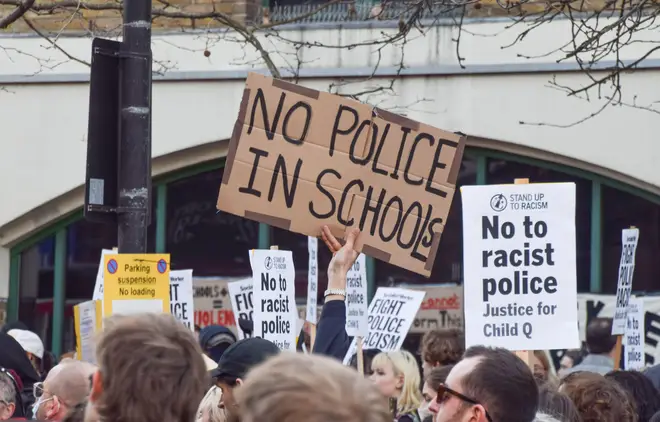
Nick Ferrari 7am - 10am
1 August 2022, 19:33

The Metropolitan Police is being investigated by the watchdog over two more cases where officers strip-searched children.
The cases both involve 16-year-old boys who were searched in custody at Ilford Police Station in January 2020 and at Bethnal Green Police Station in October 2020, both without the presence of an appropriate adult.
The Independent Office for Police Conduct (IOPC) is already investigating another three cases involving girls known as Child Q, Child A and Child X.
It is now considering whether to look into a further three cases, and has already passed another six back to the Metropolitan Police to be investigated by the force itself.
The watchdog said it is "concerned" by the cases it has seen.
It particularly raised concerns about the amount of time it took for cases such as that of Child Q - where a black girl was strip-searched at school while menstruating - was referred to the watchdog.
In most of the 14 cases under consideration no appropriate adult was present.
Read more: Four Met Police officers investigated after black schoolgirl strip-searched

The IOPC has called for reassurances from the Met that it will allow children to have an appropriate adult present when they are subject to intimate searches.
IOPC director general, Michael Lockwood said: "We have been concerned about what we have seen in the cases referred to us involving complaints about strip-searches of children, and we are acting now by making recommendations stressing that existing best practice and policies should be followed by the MPS at all times.
"Given the apparent delay in some of these cases being referred to us, we will now work with the MPS to review a sample of complaints that have not been referred to us, to establish whether the process is working as it should.
"I have also written to the National Police Chief's Council to highlight these concerns and our recommendation, so these can be shared with other forces.
Read more: 'Traumatised' black schoolgirl wrongly strip-searched to sue Met Police
"I have proposed a meeting between ourselves and relevant policing leads to discuss how we can work together to ensure this important learning is shared and seek assurance that relevant policies are being applied in other forces.
"By coming together in this way, I hope we can address increasing concerns about the use of strip-search powers in England and Wales, in order to provide assurance that they are only being used when absolutely essential."
The Metropolitan Police said that since April officers have undergone additional training around child strip-searches, and that an inspector now has to give permission for one to be carried out.
Deputy assistant commissioner Laurence Taylor, leading this work in the Met, said: "Ensuring the safeguarding of every child who is subject to a search is an absolute priority.
"What happened to Child Q was a truly regrettable incident and we have apologised publicly to her, her family and the wider community. We understand how much concern this incident has caused, and how distressed Child Q has been.
"We have been listening to the views of our communities and partners, and have already made changes as we balance the policing need for this type of search with the considerable impact it can have on young people.
"We will continue to liaise with the IOPC to discuss what more we need to do, particularly around reminding officers again of the very important requirement for an appropriate adult to be present during searches - a common theme in cases we have voluntarily referred to the IOPC, and one we must address."